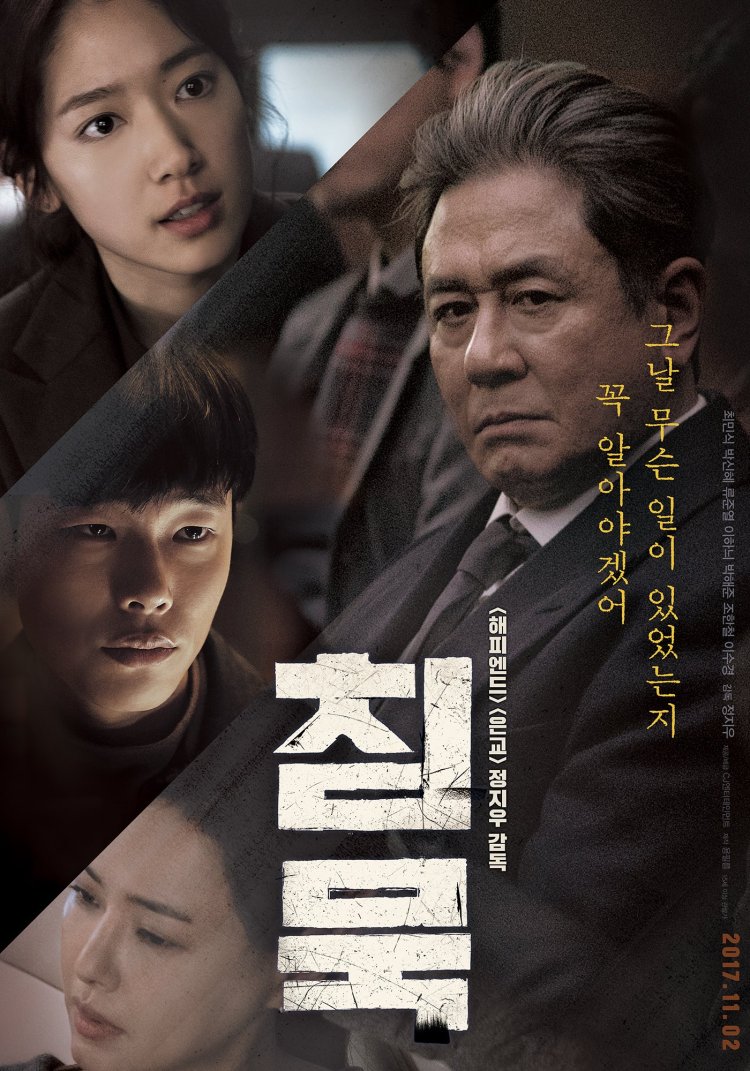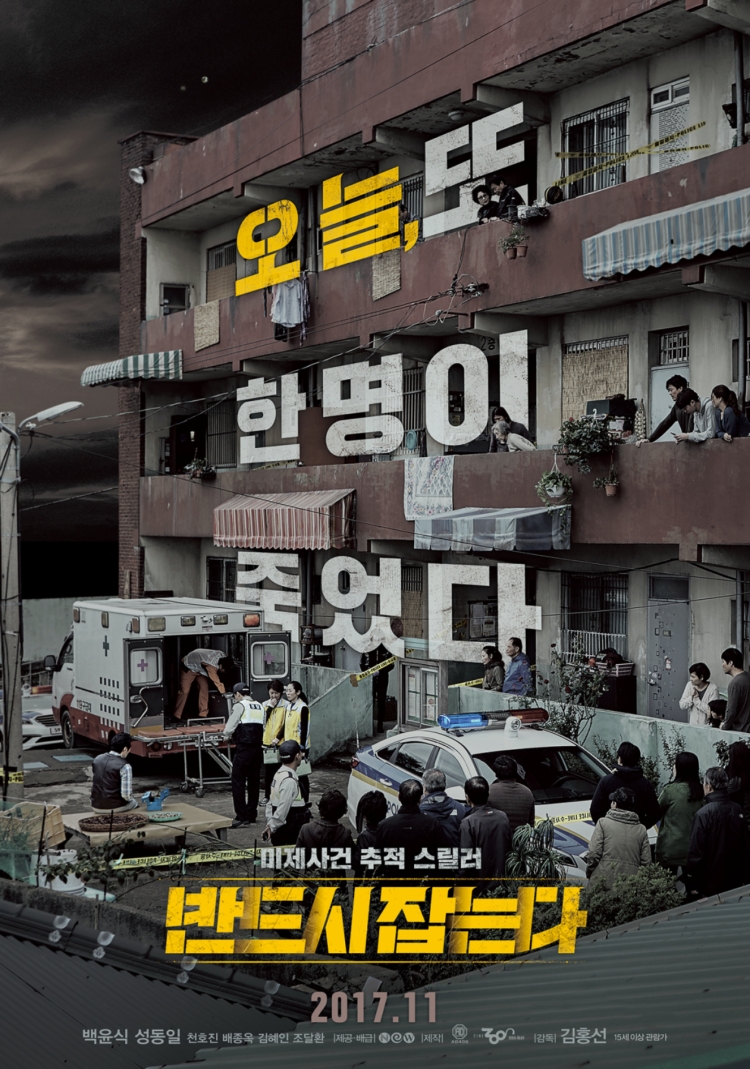 Most of us like to kid ourselves that you can become rich and successful by working hard and playing by the rules, but it takes a certain kind of ruthlessness to climb the chaebol tree. Corrupt CEO Yim Tae-san (Choi Min-sik) is about to have his mettle tested in Jung Ji-woo’s Silent Witness remake Heart Blackened (침묵, Chimmuk). Wealth, money, power, networks of control and manipulation – Tae-san has all these, but a crucial failure to keep his house in order is about to bring it all crashing down. Unless, of course, he can find an acceptable way out. There are some difficult choices to be made but nothing is quite as it first seems in this world of interpersonal gamesmanship and high stakes machinations.
Most of us like to kid ourselves that you can become rich and successful by working hard and playing by the rules, but it takes a certain kind of ruthlessness to climb the chaebol tree. Corrupt CEO Yim Tae-san (Choi Min-sik) is about to have his mettle tested in Jung Ji-woo’s Silent Witness remake Heart Blackened (침묵, Chimmuk). Wealth, money, power, networks of control and manipulation – Tae-san has all these, but a crucial failure to keep his house in order is about to bring it all crashing down. Unless, of course, he can find an acceptable way out. There are some difficult choices to be made but nothing is quite as it first seems in this world of interpersonal gamesmanship and high stakes machinations.
A widower, Tae-san is in a seemingly happy relationship with famous singer Yuna (Lee Honey). His dreams of familial bliss, however, hit rocky ground when his grown-up but still young daughter refuses to accept his new love. Despite Yuna’s attempts to win her over, Mira (Lee Soo-kyung) hates her potential step-mother with unusual intensity. Matters come to a head when some of Mira’s friends alert her to a sex tape going viral on the internet recorded some years previously and featuring Yuna with an old boyfriend. Mira demands a conference and Yuna dutifully comes, hoping for a rapprochement but getting a tirade of abuse. The next morning, Yuna is discovered close to death in the car park underneath her apartment building where a fire has been set presumably to destroy crucial evidence. Mira is arrested but can’t remember anything about the night in question. Tae-san hires an old friend of Mira’s, Choi Hee-jeong (Park Shin-hye), who has now become a defence attorney, in an attempt to get her some moral support from a compassionate lawyer.
Tae-san’s motivations remain opaque and inscrutable. He appears to think his daughter did it, so why does he hire a friendly but second rate, relatively inexperienced lawyer to defend her when he could use his vast wealth to hire the best of the best or even have the case thrown out altogether? As might be expected for someone in his position, Tae-san is a corrupt businessman with a shady past. He has a history with the prosecutor working on this case who has an interest in trying to get at him through his daughter but Tae-san tries buying him off anyway. To Tae-san money is everything. There is nothing which cannot be bought, nothing which cannot be done by a man with “means”, and no trap which cannot be sprung by a man in total control. So why is he letting his daughter go through all this when he could have found a way to pull her out of it?
As it turns out, there are things money can’t buy (but in a round about way, you might be able to make a cash sacrifice in order to prove how much you want them). As part of their investigations, Tae-san and Hee-jong rub up against creepy super fan Dong-myeong (Ryoo Joon-Yeol), otherwise known as “Cableguy”, who’s been stalking Yuna for years and has secret cameras installed all over her apartment building meaning he may have crucial footage of the incident. To Dong-myeong, however, money is “worthless” in comparison to love, family, and friendship (or so he says). Taking the stand, Tae-san amps up his fascistic chaebol survival of the fittest rhetoric in reiterating that “not all lives are equal” and that saying there’s nothing to be done is only the defeatist excuse of the perpetual failure. If he believes the things he says, then Tae-san is indeed a “vile man” as the prosecutor brands him, but then again Tae-san’s relationship to the “truth” is not altogether a faithful one.
Tae-san believes that “money fixes everything” and whatever else he may have done, it’s hard to argue with his final assessment. What Tae-san is experiencing may well be karma for his life of corporate machinations, but it’s not quite of the kind you might expect. Mira, the archetypal chaebol child – spoiled, entitled, selfish, and arrogant, has in a sense been ruined by her father’s failure to teach her there are things more important than money and it’s a lesson both of them will find hard to learn. A chaebol chastened, Tae-san is a man brought low by his own ideology but it’s hard not to feel sorry him as he finds himself back on the path to righteousness having lost everything even if the real villain is the world which blackened his heart to such an intense degree.
Heart Blackened was screened as part of the 2018 London Korean Film Festival.
International trailer (English subtitles)





 Review of Jo Sung-hee’s The Phantom Detective (탐정 홍길동: 사라진 마을, Tamjung Honggildong: Sarajin Maeul) first published by
Review of Jo Sung-hee’s The Phantom Detective (탐정 홍길동: 사라진 마을, Tamjung Honggildong: Sarajin Maeul) first published by